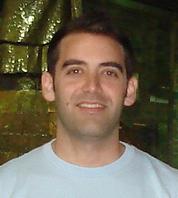NU Splash Biography
Edit this biography!JAMES WILSON, Dr. of Materials Science/Energy Technology Fanatic
|
College: Northwestern University Major: Materials Science Year of Graduation: Not available. |

|
Brief Biographical Sketch:
James Wilson originally graduated from Northwestern University in 1999 with majors in Integrated Science and Mathematics. Four years later, after a year abroad in New Zealand and a few years collecting a paycheck, he returned to Northwestern as a graduate student in the Materials Science and Engineering department where he completed his Ph.D. in December of 2008. His research focus was on solid oxide fuel cells, where he helped to develop a new technique to collect three-dimensional images of the structures of fuel cell electrodes. This enabled researchers to better understand the connections between the processing of electrodes and how well they perform, hopefully allowing for cheaper and more efficient fuel cell production in the future. Unable to tear himself away from Northwestern, James is currently conducting a post-doctorate research position exploring degradation in Li-ion batteries. In addition to his research, he is active in the new Northwestern Energy Technology Group (NETG), a graduate student group aimed at promoting awareness and discussion of various energy technologies, for which he has a great passion. While his enjoyment for skiing and mountaineering occasionally make him long for a mountainous skyline, most of his free time is spent enjoying all that Chicago has to offer. Past Classes(Clicking a class title will bring you to the course's section of the corresponding course catalog)E22: Modern Energy Technologies in Splash 2010 (Apr. 03, 2010)
How do we harness wind and sun energy? How do we store and transmit energy? In this class you will get a broad review of all types of energy technologies that span Supply (where does our energy come from), Demand (where and how is the energy used), and Storage & Transmission (how can we hold on to energy for later use and for far away locations). This is a review class, no major math or science needed - just a desire to learn more about our energy future. Includes hands-on demonstrations.
|
|
